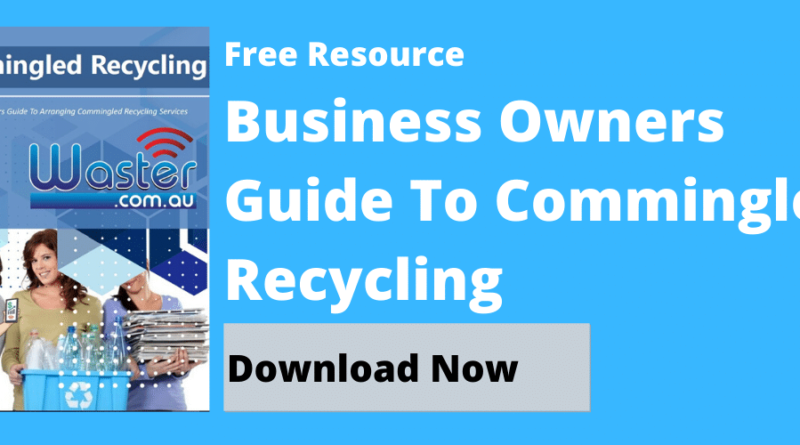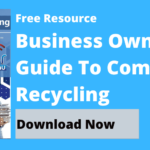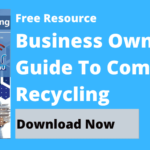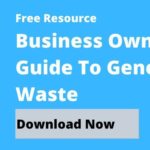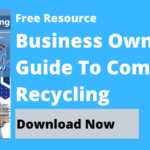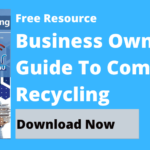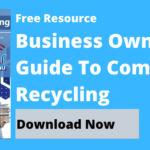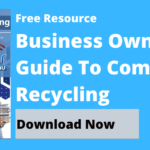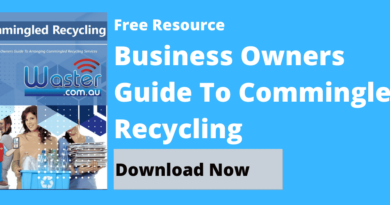What To Do With Food Waste Problem♻️ Podcast Ep. 21 Don’t Be A Waster
Energy Disrupter
What To Do With Food Waste Problem ♻️ Podcast Ep. 21 Don’t Be A Waster
In this episode of our podcast on all things recycling – we discuss what you should with a big problem we all call as food waste, so read on to learn more.
Listen on Apple Podcasts Listen on Spotify Listen on Google Podcasts Listen on Stitcher Listen on Amazon Music
Transcript: What To Do With Food Waste Problem
Hello and welcome to another edition of what I’m sure is becoming your favourite – almost a viral podcast, I hope – wishful thinking on recycling that is, of course, Recycle: Don’t Be A Waster. In today’s, episode we want to discuss a problem, and it is a big problem, and that problem is called food waste. And basically, what are we going to discuss: we will discuss what can you do with food waste where can you place it what is the best way to dispose of it and and stuff pertaining to that question, you know.
I suppose the first question is why is food waste an issue food waste is a problem I suppose if you go back to the mists of time and an apple falling from the tree almost like Isaac newton watching an apple falling if an apple falls from a tree it lands on the ground it rots away it decomposes and it creates you know compost natural style compost nourishes the soil and a new apple tree will grow, so it really is the definition of circular economy it is the definition of closed loop a system pardon me so it is really I suppose the ultimate system of recycling so why do we then think of food waste as being a real problem what is what is the real issue and I suppose it is our modern system of how we live.
>Download Now: Free PDF Business Owners Guide To Commingled Recycling Bin Services
We tend to live in cities at least in Australia the majority of us I think 90 of us live within a couple of kilometres from the seashore in Australia and what is a huge island or island continent and with that then we have issues regarding shipping of waste to landfill centres landfill facilities and which obviously creates transport issues which creates collection issues which creates emission issues and, of course, then with that you have shortage of landfill space you know near cities and also then you have what is a greenhouse gas issue.
And my understanding of greenhouse gases in a landfill that’s in that same apple that in olden times in times of your water fallen and decomposed on the ground is now compressed in an environment that is no very lacking in oxygen inside the landfill and that means that it decomposes in an anaerobic format and tends to from our reading emit a higher percentage of methane than carbon dioxide which we are told is a more potent greenhouse gas, err… with a gas that is submitted with a higher greenhouse effect so it apparently has a larger effect on temperature changes, and that sort of thing in the climate so admittedly that is not the topic for our discussion.
I’m not here to argue here and there on all that sort of stuff and but I suppose what we focus on is the more practical aspects which is the obviously not the science we’re not scientists but we will focus on better treatments for organic material and so what I’ll do is I’ll run through some of them I’ll try to maintain a hierarchy such as you know best to worst or if not then this potentially that format so that you know we can we can work things out most will pertain to I suppose a business a commercial enterprise which is wasters customer base but obviously many of these will also appeal or apply to residentials domestic situations private households etc.
So I suppose the first thing food waste you know don’t buy more food than you require simple old home economics 101 eat the food that you use plan your meals and minimize food waste problem solved podcast finished but joking aside I think we’re always going to have food waste there’s not much we can do with it second step again traditional is a pet dog dogs tend to eat nearly all foods admittedly again the vets listening will be giving me grief over this because I know certain dogs are not supposed to eat certain things but in traditional societies dogs and pets would have consumed leftover foods so moving on to actual practical advice that’s not just a cliché how do we get rid of waste like fundamentally you can dispose of your waste in a general way spin in your red waistband, which will go to landfill and that waste will decompose as we mentioned in an anaerobic environment emit methane.
[embedded content]
The only benefit of a modern landfill is a certain percentage and thankfully an increasing percentage of those emissions will be captured through gas turbine to creating electricity and it will power thousands of homes obviously this is probably the least the least good outcome or solution and we’ll list some that are potentially better in a in a business environment you could have an organic waste bin so say you’re a restaurant a café a food production business who’s you know making prepared meals you may go for an organic waste bin an organic waste bin and you generally just throw the waste in just food only and it is taken in new south Wales.
It is taken for electricity generation where it’s allowed to decompose emit that methane and a more efficient capture methodology they create electricity from it so it’s less emissions reaching the environment and a higher percentage of a higher degree of electricity per calorie is captured than you would do in the landfill environment so that clearly is a beneficial system a lot of companies then will also describe that as recycling or diversion from landfill is probably more of an accurate and accurate description we are seeing in the residential throughout new south Wales and most states what are being called Fogo bins or FOGO, I believe, is an acronym for food organics greenery and something else.
I can’t exactly remember what it is but focal FOGO is the acronym and these bins are being rolled out across councils across municipal collections it was pretty much delayed by the covert crisis and the fact that everything wasn’t stopped for a certain period of time but as it’s starting again my understanding the last I read is that most places in metro regions will be aiming to have these bins available from by the end of 2023 so was that you know 24 months away or less so 18 months away so that would be interesting and it’ll be certainly interesting to see the outcomes and what happens in that regard so that will be coming.
In the meantime, you have other options of course you have when you’re a very large business and we’re thinking here things like food production companies factories even large hotels large restaurants there are what are called waste to water machines and on initial impression these things sound almost too good to be true so a waste of water machine is it’s a large machine it looks like a large stainless steel tank and they come in various sizes and dimensions and what you do is you put the food into it the waste food that you don’t require. It’s a combination of bugs and different organisms are entered into it you know and then they break down this matter into basically a water format water is added.
And this food you know food cocktail or food mixture can then be just emptied down the sewer just directly into sewers and apparently it benefits the water cleaning system because it helps the other bugs and the processes that are at the water cleaning facilities you know whether through Sydney water in Sydney or icon water or which whichever water authority you deal with so obviously worth checking or you will be required to check with your local water authority as to what is required but that is an option and the great benefit of that is then that you don’t pay for bin collections.
You don’t have to wait there are no miss bins you don’t have to order extra bin collections in theory once the facility was the machine is installed and you have a you know minimal annual upkeep you’re saving money from day one so it is more of a capital expenditure than with lower ongoing costs so that also is one to look into then we’re looking into other aspects which are composting machines and composting options and worm farms and you have like fundamentally what you’re doing is you’re composting the waste you know in your domestic or in your smaller location, whether it’s at the back of your restaurant in a garden, you’re composting that and you are using that compost for plants or giving it away.
There are issues obviously with the quality of the compost being produced and you would need to check with local authorities as to how you can use that compost whether you can sell it whether you can give it to customers etc. and that’s illegal or you know a commercial aspect that really we can’t comment on you can certainly use it for your own domestic usage or for your own plants in, in the in the café or restaurant.
Another option is worm farms which do a very similar job of breaking down breaking down these facilities or breaking down this waste and we recently we recently found out about an option which is useful for these this aspect whereby they have very user-friendly user-friendly worm farms that can be kept inside offices and office buildings and the website is wickworming.com.edu that’s w-i-c-k worming.com.edu and on that website they sell you can see the facilities whereby you can have these very appealing looking worm forms that can be used to be located in an office or business and you can get rid of your food waste so an office could almost be zero waste in that regard so that’s one worth looking into.
There are other options, I suppose, that are coming down the track which are biofuel generators whereby and these are very useful in places such as farms where there’s a lot of food waste and you’re off the grid you know more rural areas outback or bush areas and the food is allowed to decay in a similar method to the organic food waste bins it decays emits gas that gas is burned on site and creates electricity to power your building so that is increasing the technology is becoming more user-friendly all the time.
And I think within the next couple of years you will see biofuel reactors you know on every balcony and in every domestic residence in in Australia so that’s coming very soon and I think you know I think some people have often discussed and said that maybe in the future people will buy food waste from each other you’ll buy that waste food as a source of energy in the way that nowadays we trade coal or gas or elect or oil you know traditional carbon-based fuels and in the future we might be trading you might be selling your waste food to somebody who can then create biofuel from that and create electricity which will be clearly renewable and cleaner so there are lots of options there are lots of methodologies clearly dumping at landfill is let’s call it not the best option there are clearly better ones and so we will be we’ll be accessible exploring some more of these in future episodes we covered quite a lot today in this short podcast but I hope it’s wetted your appetite for more yeah to find out more so I think we’ll leave it there today and of course any comments any feedback feel free to reach out to us at waster.com and in the meantime, Recycle: Don’t Be A Waster!


